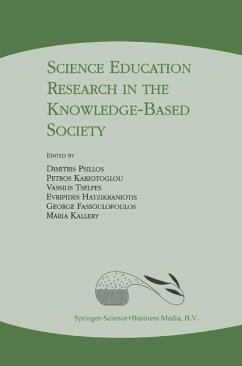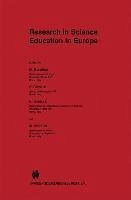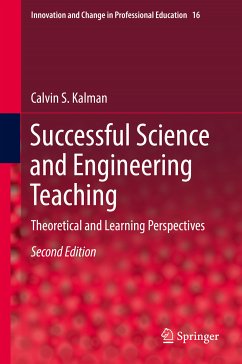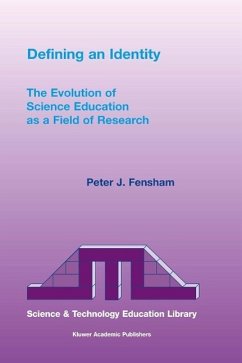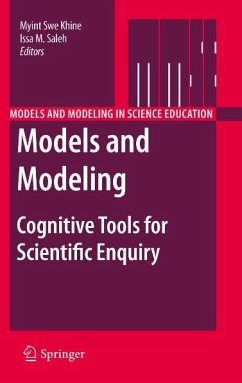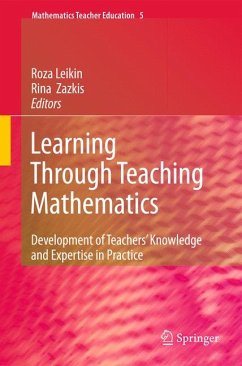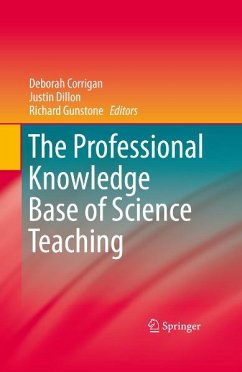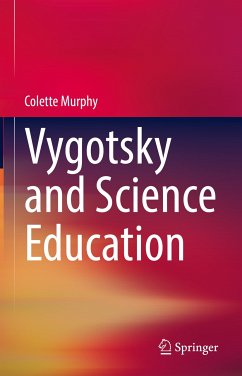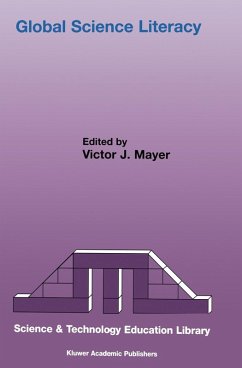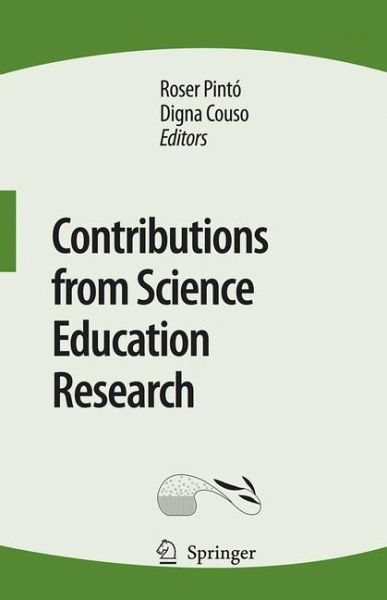
Contributions from Science Education Research (eBook, PDF)
Versandkostenfrei!
Sofort per Download lieferbar
160,95 €
inkl. MwSt.
Weitere Ausgaben:

PAYBACK Punkte
80 °P sammeln!
In August 2005, over 500 international researchers from the field of science education met at the 5th European Science Education Research Association conference in Barcelona, Spain.Two of the main topics at this conference were: the decrease in the number of students interested in school science and concern about the worldwide outcomes of studies on students' scientific literacy. At the conference, over 400 papers were presented, covering a wide range of topics relevant to science education research, such as evidence-based practice, teachers' professional development, the role of ICT and multi...
In August 2005, over 500 international researchers from the field of science education met at the 5th European Science Education Research Association conference in Barcelona, Spain.
Two of the main topics at this conference were: the decrease in the number of students interested in school science and concern about the worldwide outcomes of studies on students' scientific literacy. At the conference, over 400 papers were presented, covering a wide range of topics relevant to science education research, such as evidence-based practice, teachers' professional development, the role of ICT and multimedia, formal and informal learning environments, and argumentation and modelling in science education. This volume includes edited versions of 37 outstanding papers presented during the conference, including the lectures of the keynote speakers. They have been selected for their quality, variety and interest, and present a good overview of the field of science education research.
Two of the main topics at this conference were: the decrease in the number of students interested in school science and concern about the worldwide outcomes of studies on students' scientific literacy. At the conference, over 400 papers were presented, covering a wide range of topics relevant to science education research, such as evidence-based practice, teachers' professional development, the role of ICT and multimedia, formal and informal learning environments, and argumentation and modelling in science education. This volume includes edited versions of 37 outstanding papers presented during the conference, including the lectures of the keynote speakers. They have been selected for their quality, variety and interest, and present a good overview of the field of science education research.
Dieser Download kann aus rechtlichen Gründen nur mit Rechnungsadresse in A, B, BG, CY, CZ, D, DK, EW, E, FIN, F, GR, HR, H, IRL, I, LT, L, LR, M, NL, PL, P, R, S, SLO, SK ausgeliefert werden.



